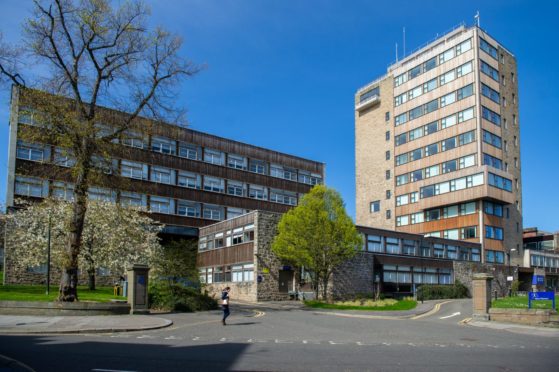Criminals who identify as LGBT+ are at particular risk of being traumatised while serving their sentence in Scottish and English prisons, a Dundee University study has found.
Research carried out by the university found that offenders from an LGBT+ background are disproportionately affected by violence and hate crimes while incarcerated.
The report has called for widescale reform of prison culture in a bid to provide suitable support for these prisoners.
The study, ‘LGBT+ people in prisons: Experiences in England and Scotland’, examined how individuals act, as well as exploring how institutional policies shape discrimination.
Interviews and focus groups were conducted with more than 60 management staff, prison officers and LGBT+ prisoners.
Prisons in Scotland are managed by the Scottish Prison Service (SPS) in Scotland and by the HM Prison and Probation Service in England.
A SPS spokesman said they worked hard to promote equality and diversity in their estate.
The HM Prison and Probation Service did not respond to a request for comment.
Dundee University researchers carried out interviews in five Scottish prisons and four in England, although they would not be drawn on which ones, citing identification concerns.
The report found that most prison staff members are aware of the issues faced by LGBT+ people in custody, however, this is often dealt with by segregating the individual for their own protection.
LGBT+ participants reported a lack of access to appropriate support, which led to people feeling isolated, misunderstood and mistrustful towards the justice system.
Dr Fernando Fernandes, co-ordinator and co-author of the study, said: “Despite a good policy framework, our research shows that prisons are inherently traumatising, rigid and frequently dangerous places, particularly for those who identify as LGBT+, as these needs are often ignored or minimised.
“This is due to widespread lack of understanding and institutional culture that is not prepared to accommodate LGBT+ needs in their agenda and everyday practices.
“To address this issue it is necessary to develop systematic and reflexive learning approaches in which the whole system incorporates LGBT+ rights and needs into everyday practice.
“In the cases when deprivation of liberty is a last resort, prisons need to be prepared to understand equality and diversity to provide the necessary support LGBT+ people need, including their fundamental right to be themselves and not being penalized for that.”
The study concludes by stating more staff training on the issues raised is needed.
It also highlights the need to build networks with LGBT+ groups, family and friends to improve support available to prisoners upon their release.
The full report, which was conducted in collaboration with the Barrow Cadbury Trust, is available on the Dundee University website.
A Scottish Prison Service (SPS) spokesman said: “Equality and diversity is something we take very seriously and have worked with a variety of LGBT+ groups to promote this.”





